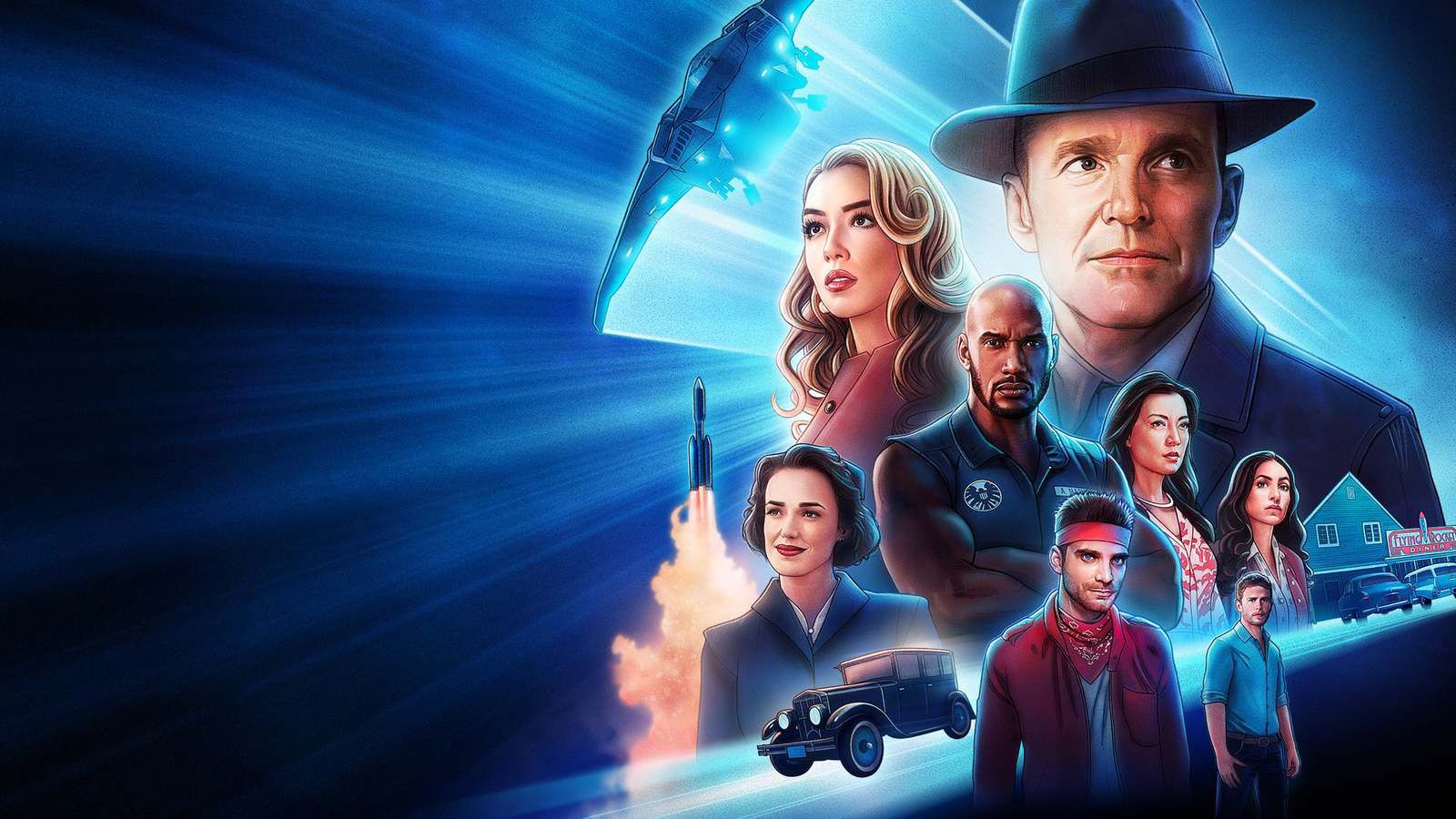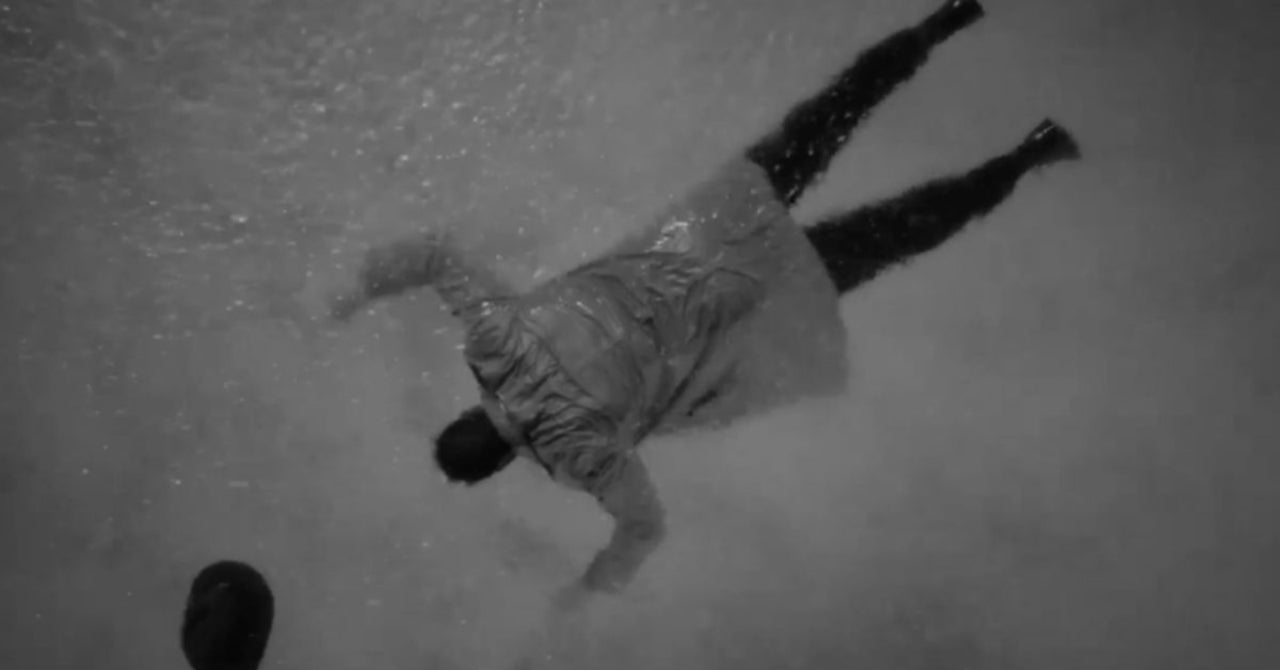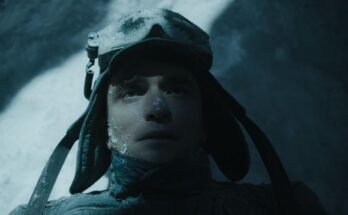Want to hear more from the actors and creators of your favorite shows and films? Subscribe to The Cinema Spot on YouTube for all of our upcoming interviews!
Managing editor & film and television critic with a Bachelor's of Arts in English Literature with a Writing Minor from the University of Guam. Currently in graduate school completing a Master's in English Literature.
“These aren’t typical times.” Agents of S.H.I.E.L.D.‘s fourth episode of its final season is titled “Out of the Past;” it is written by Mark Leitner, and directed by Garry A. Brown (Prison Break).
Some spoilers ahead for those who are not up-to-date with the series or not caught up with this episode. If you haven’t done either, get to that now, then return to this article!
Brown directs the show’s lovely episode this week, which takes a noir theme filled with monologues from Life Model Decoy/ Chronicom Phil Coulson (Clark Gregg), former director of the SHIELD organization. He and the team help agent Daniel Sousa (guest star Enver Gjokaj) on his final mission: deliver a crucial device to Howard Stark — the father of Tony Stark and ally to SHIELD.
Unlike its previous episodes of the season, this current episode does not demonstrate the themes of sexism and racism, and it instead only addresses them via dialogue. Its episode title “Out of the Past” gets its name from the SHIELD agents being displaced from time periods before them, bringing them closer to their own time. As narrated by Coulson, the episode focuses on history (on both a global and national scale) when he begins by stating:
Fate. I don’t believe in it, but I know history. I know how the story goes, and when it’s playing right out in front of you, it feels like you can’t escape. That fate’s gonna catch up to you, tap you on the shoulder, whisper in your ear that your time’s up … And then your story ends. Sometimes the hero has to die, and there’s nothing you can do about it.
On July 22nd, 1955, Coulson tells the story of Sousa’s death at the hands of Hydra — whom he suspects has infiltrated SHIELD — and rendering him “the first fallen agent of SHIELD.” Meanwhile, Elena “Yo-Yo” Rodriguez (Natalia Cordova-Buckley) and Deke Shaw (Jeff Ward) retrieve the aforementioned “groundbreaking SHIELD device” from a SHIELD agent, but one of them crosses paths with a much older Wilfred “Freddy” Malick than the one they met in 1931.
The pacing of the episode is normal — that is, neither too slow nor too brisk. The order of events is not made complex and conveys what needs to be shown. Chronicom Enoch (Joel Stoffer) and agent Melinda May (Ming-Na Wen) develop the most in the episode; Stoffer’s character claims that he will be forever alone — left behind by the agents — and not have any actual friendships, at least, not any established through inebriation. May discovers that she can feel the emotions of those she comes into physical contact with.
The concept of history plays a huge role in this episode and in the season thereof. Deke Shaw tells Yo-Yo that the 1950s are just as “sexist and racist” as the 1930s, that “some things never change,” to which she responds, “[History] always gets better, just never fast enough.” Progress requires time to transform, and it’s even more vital when time travel comes into play. Thus, all we can do for the time being is to try and make a change, no matter how small an impact the result is. Although, with progress comes huge risks, and in one scene, Coulson and Alphonso “Mack” MacKenzie (Henry Simmons) discuss the existence of evil within the confines of history. On the topic of martyrs, Mack says, “It’s easier to let a bad man live than to let a good man die.” In the end, the agents believe they’ve saved the future, but evil has recruited two bad faces into working together.
History/progress also requires power. SHIELD needs individuals such as Howard, the “pompous ass” that leads to a better future. These organizations need individuals like this, and Coulson tells Sousa that “big thinkers can come off that way — makes for a divide between those in the lab and those in the field.” In comparison, the Malick of 1955 tells Shaw about power: “When you reach my position, it’s easy to forget the people that helped you on your way to the top.” Unlike Stark, the progress of evil is full of hubris for all the wrong reasons.
“Out of the Past” takes a lot of its best players out from their time in their efforts to save themselves for the future. Coulson cites the novel-play Requiem for a Nun by the late American writer William Faulkner, “The past is never dead. It’s not even past.” There are too many events that occur throughout history, but so few of them are recorded on text. Coulson adds, “Not everything’s in the [history] book(s).” As Shaw had mentioned, the problems that were faced in the past are still afflictions today, and that is why we still live in the past. History only repeats itself, and it only records the events most prominent to the non-colored man.
This episode utilizes history as a major theme, with progress, time, and power as its focal points. The black-and-white noir style of storytelling is necessary for the narrative of Sousa’s death and, like “That Evening Sun,” another of Faulkner’s stories, conveys its narrative of a dark world in such a simplified way that could be understood by many. Shaw and Rodriguez are foregrounded along with Coulson, while Jemma Simmons (Elizabeth Henstridge) and Daisy Johnson/ Quake (Chloe Bennet) are solely used as side characters of the arc.
8.8/10
A new beginning. #AgentsofSHIELD @clarkgregg pic.twitter.com/MoavfMKpKc
— Marvel's Agents of S.H.I.E.L.D. (@AgentsofSHIELD) June 18, 2020
What do you think? Have you seen this series? If not, do you plan to binge it sometime in the near future? Let us know! For more Agents of S.H.I.E.L.D., action, science-fiction, and Marvel-related news and reviews, follow The Cinema Spot on Twitter (@TheCinemaSpot) and Instagram (@thecinemaspot_).
Managing editor & film and television critic with a Bachelor's of Arts in English Literature with a Writing Minor from the University of Guam. Currently in graduate school completing a Master's in English Literature.







13 Comments on “‘Agents Of S.H.I.E.L.D.’ S07E04 Review – “Out Of The Past””